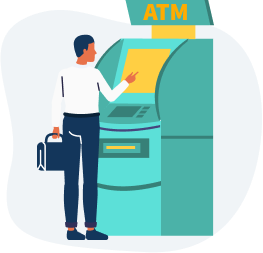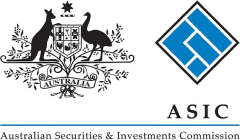Currency in Papua New Guinea
A Travel Money Guide to Papua New Guinea
With its complex culture and biodiversity, Papua New Guinea offers an infinite supply of extraordinary discovers for even the widest-eyed traveler.
Whether it’s trekking the iconic Kokoda Track, exploring the rainforest trails or observing the exotic wildlife, there is something for everyone in this remarkable Pacific nation. Discover how life unfolds in the ultimate tropical paradise.
But before you do that, you probably should find out more about the currency in Papua New Guinea and the travel money options for your trip. With our handy and comprehensive guide, you’ll find the best way to take your money to Papua New Guinea.
The currency used in Papua New Guinea
The best currency to use in Papua New Guinea is the Kina. It’s represented by the international code PGK and the symbol K.
As with the Aussie dollar, the Kina is made up of 100 cents (also known as 100 toea) and comprises a mixture of banknotes and coins.
Kina banknotes come as K2, K5, K10, K20, and K50. Coins are available in 1t, 2t, 5t, 10t and 20t.
Can I Use Australian Dollars in Papua New Guinea?
It is important to take note that Australian dollars are not accepted in Papua New Guinea. In fact, the Aussie dollar has no value to locals and will need to be converted into Kina cash as it would make paying for your activities much easier.
What Currency Do They Accept in Papua New Guinea?
Seeing that the unit of currency in PNG is the Kina, it is strongly recommended for you to acquire your Kina banknotes and coins prior to you departing for your trip. Alternatively, there are foreign exchange money changers located at the airport that are happy to exchange currencies including Australia, US or New Zealand dollars for the local Kina.

Using Your Bank Card in Papua New Guinea
Some of the best travel money cards include debit, credit and prepaid cards.
At most major hotels and restaurants, international credit cards are accepted. However, that is not in the case in small towns or stores.
Whether you choose to pay with your card is still up to you, as long as you’re aware of the fees and charges incurred by the respective cards.
Debit Cards
Debit cards in Papua New Guinea are best used for ATM withdrawals even though there are still a handful of businesses, mainly bigger ones that will allow you to pay by card.
Depending on which card you use, you may face excessive bank fees for each transaction. These fees may include foreign ATM withdrawal fees and conversion fees.
For a hassle-free experience, search for a bank card that’s designed for frequent travellers. Some travel-friendly debit cards that waive a portion of the charges include Wise, ING, Citibank and Revolut.


Credit Cards
You may use credit cards at some locations and at the ATM, but ensuring you have cash on you most of the time in Papua New Guinea would be ideal.
Certain credit cards come with attractive features for frequent travellers, including complimentary travel insurance, rewards points, and additional security measures.
But the perks are countered by some exorbitant charges if you use your card overseas, including:
- International transaction fees
- High exchange rate margins
- ATM fees
- Potential ‘cash advance fees’ if you use an ATM
As with debit cards, there are some exceptions. Bankwest Platinum and 28 Degrees cards are designed for travellers and waive the currency conversion fees.
Prepaid Travel Cards
One of the biggest advantages of prepaid travel cards is that you can lock in a favourable exchange rate. You also get a handy back-up card!
Just remember that while they are convenient, you could end up with hidden fees. Some travel cards still impose the following:
- Currency conversion fees
- Uncompetitive exchange rates
- International ATM withdrawal fees
- Reload fees
- Inactivity fees

How to Exchange Currency in Papua New Guinea
In Papua New Guinea, the locals predominantly use cash for transactions. If you are venturing out of hotels or resorts that accept card payments, we would recommend having the right bills in your wallet before you begin your exploration of the beautiful islands.

ATMs in Papua New Guinea
When you withdraw money from the ATM, the money will be in Papua New Guinean Kina. It’s important to note that ATMs are located in or near bank branches in Port Moresby, the airport and at all major centres. There are also many hotels in Port Moresby and major ports that have ATMs.
Withdrawing from an ATM in Papua New Guinea may include paying for an expensive fee. Papua New Guinean ATMs typically charge K15 – K20 per withdrawal. That is on top of any foreign ATM withdrawal or currency conversion fee your bank might impose per transaction.
ANZ and Westpac operates in Papua New Guinea. So if you have a card from either of these banks, you can avoid the ATM withdrawal fee by using the ATM that corresponds to your bank card.
Important note: Make sure you notify your bank about your travels. If you don’t, they could consider any Papua New Guinean purchases as suspicious activity and freeze your card.
Currency Exchange in Papua New Guinea
There are various ways to change your AUD into PGK in Papua New Guinea. Changing your money to Papua New Guinean Kina prior to your trip would be ideal for a smooth-sailing journey but there are money changers available if that is not the case.
For reliable exchange services, you can also choose to head to ANZ Bank and Westpac Bank in Papua New Guinea.


Travellers Cheques
Some banks and hotels in Papua New Guinea still cash traveller’s cheques. But that doesn’t mean you should invest in them. You’ll get just as much value (if not more) out of alternatives such as ATM withdrawals and direct cash exchanges.
Buying Papua New Guinean Kina Before You Go
Having the local cash on you as soon as you touch down in a new destination can bring much-needed comfort. Luckily, buying Papua New Guinean Kina before you leave home can be a seamless process, with three main options to suit your needs:
- Buy PGK online and have it delivered or collect it in-store.
- Buy from a bureau de change.
- Buy at your home airport.
Since bureau de change desks at Australian airports are renowned for their poor rates, we recommend avoiding them and picking up your currency ahead of time.
A fuss-free way to secure your travel money is to order it online. It can be delivered to your door or made available for pick-up at a convenient location. Online currency providers offer competitive deals you’re unlikely to find elsewhere. For example, S Money offers the same rate listed on Google and XE.com.
If you’re in the city, an alternative is to visit a CBD bureau de change. Suburban outlets don’t have the competition to keep prices low and banks often supply high fees and poor rates.
How Much Cash Should I Bring to Papua New Guinea?
Don’t be left with leftover foreign cash at the end of a trip! The process of converting it back into AUD, compounded with unnecessary fees can make this a real chore. To avoid this, simply calculate your budget and plan accordingly.
Now, your budget depends entirely on whether you prefer to backpack or a more luxurious experience. It’s also highly affected by your travel itinerary. We recommend putting aside roughly 644 PGK per day for Papua New Guinea, depending on your own needs.
Here are some of the average costs to help you calculate your own budget (all quoted in Papua New Guinean Kina):

489 PGK
A private room for two

70 - 80 PGK
A standard dinner

12 PGK
A beer

14 PGK
A short taxi ride

46 PGK
A full day island tour


